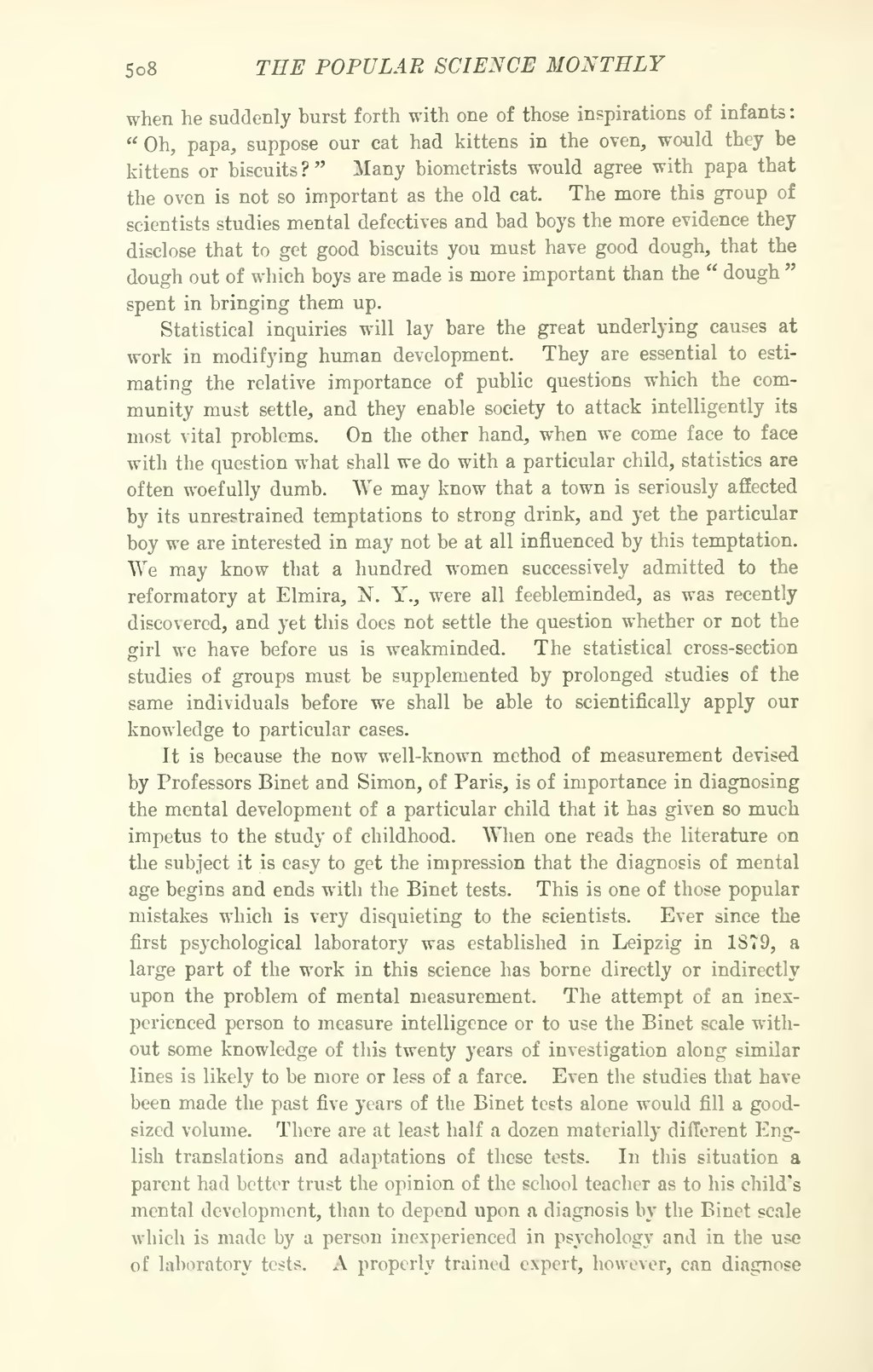when he suddenly burst forth with one of those inspirations of infants: "Oh, papa, suppose our cat had kittens in the oven, would they be kittens or biscuits?" Many biometrists would agree with papa that the oven is not so important as the old cat. The more this group of scientists studies mental defectives and bad boys the more evidence they disclose that to get good biscuits you must have good dough, that the dough out of which boys are made is more important than the "dough" spent in bringing them up.
Statistical inquiries will lay bare the great underlying causes at work in modifying human development. They are essential to estimating the relative importance of public questions which the community must settle, and they enable society to attack intelligently its most vital problems. On the other hand, when we come face to face with the question what shall we do with a particular child, statistics are often woefully dumb. We may know that a town is seriously affected by its unrestrained temptations to strong drink, and yet the particular boy we are interested in may not be at all influenced by this temptation. We may know that a hundred women successively admitted to the reformatory at Elmira, N. Y., were all feebleminded, as was recently discovered, and yet this does not settle the question whether or not the girl we have before us is weakminded. The statistical cross-section studies of groups must be supplemented by prolonged studies of the same individuals before we shall be able to scientifically apply our knowledge to particular cases.
It is because the now well-known method of measurement devised by Professors Binet and Simon, of Paris, is of importance in diagnosing the mental development of a particular child that it has given so much impetus to the study of childhood. When one reads the literature on the subject it is easy to get the impression that the diagnosis of mental age begins and ends with the Binet tests. This is one of those popular mistakes which is very disquieting to the scientists. Ever since the first psychological laboratory was established in Leipzig in 1879, a large part of the work in this science has borne directly or indirectly upon the problem of mental measurement. The attempt of an inexperienced person to measure intelligence or to use the Binet scale without some knowledge of this twenty years of investigation along similar lines is likely to be more or less of a farce. Even the studies that have been made the past five years of the Binet tests alone would fill a goodsized volume. There are at least half a dozen materially different English translations and adaptations of these tests. In this situation a parent had better trust the opinion of the school teacher as to his child's mental development, than to depend upon a diagnosis by the Binet scale which is made by a person inexperienced in psychology and in the use of laboratory tests. A properly trained expert, however, can diagnose

